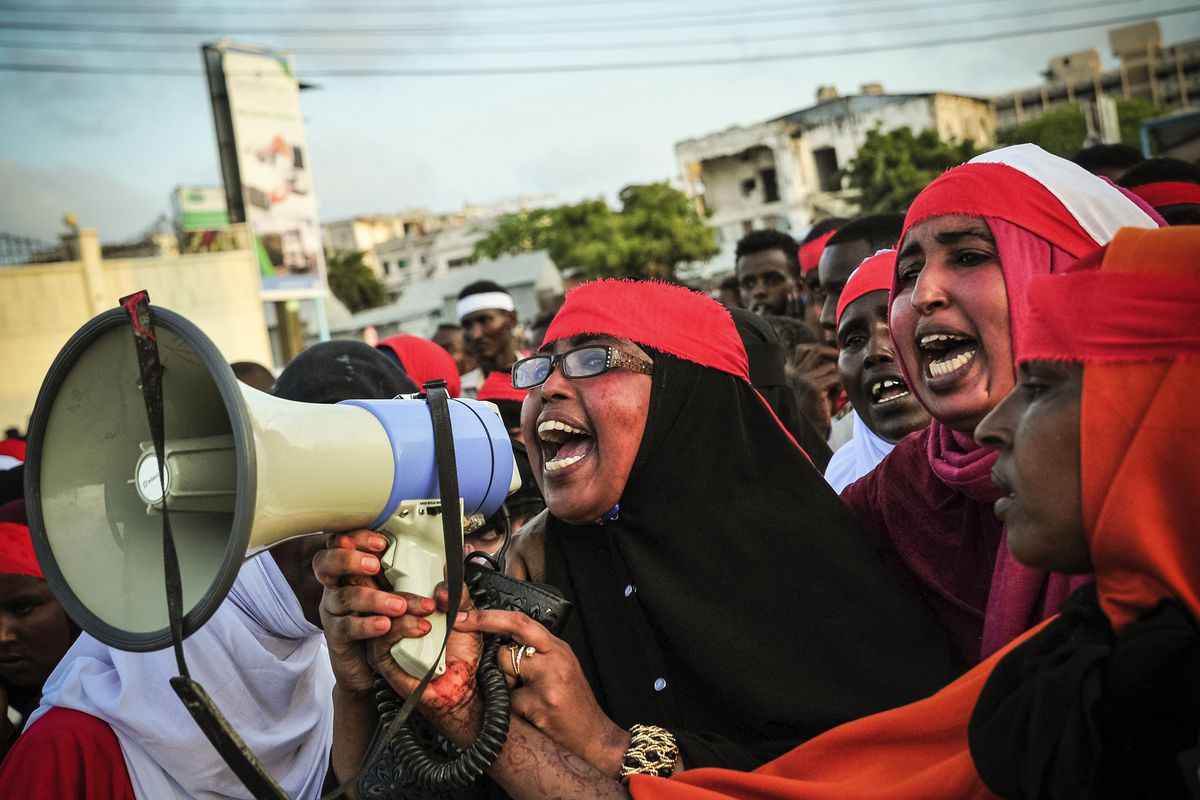New Somali government should open talks with Al-Shabaab-Crisis Group

By T. Roble
GOOBJOOG NEWS|MOGADISHU: President Hassan Sheikh Mohamud should leverage his reconciliation agenda to open lines of dialogue with the militant group Al-Shabaab, Crisis Group has said noting military means alone will not deliver any solution to the 15-year protracted war.
Crisis said in a report, Considering Political Engagement with Al-Shabaab in Somalia released on Monday that it was time dialogue with Al-Shabaab was pursued noting intransigence could lock Somalia into an endless conflict.
While the new administration in Villa Somalia will need to continue military operations and repair relations with the Federal Member States, Crisis says, “It should seek to engage Al-Shabaab’s leaders to test whether political talks might be feasible and explore initial confidence-building steps that could reduce violence.”
The report however appreciates dialogue could face several roadblocks but adds that it is the best possible way to save Somalia from incessant wars.
To realise this objective, Crisis Group proposes three avenues. One is the appointment of a high-level envoy empowered to represent the government. A second option, the report says, is to identify a team of trusted intermediaries who could include clan elders, the clergy and businessmen. The President could also opt for the UN through its UNSOM office in Mogadishu.
HEADWINDS
However, Crisis says, either option could face several headwinds, especially from the political front. One, various political actors especially elites and certain regions have different attitudes towards dialogue. Somaliland for example might be reluctant to such a move because Al-Shabaab’s irredentist stance could jeopardise its quest for statehood. Puntland on the other hand, which has had little Al-Shabaab influence may be worried about more concessions to the militant group as it eats into its standing and influence in the country’s governance and political structure.
Further, the report argues, that some Somali political elites might view Al-Shabaab as a direct competitor in the political arena. Other militant groups opposed to Al-Shabaab such as Ahlu Sunna Wal Jamaa and the self-styled Ma’awisley may not also warm up to the prospects of dialogue, Crisis says.
Crisis Group also warns that a path for dialogue will need to factor in the possibility of the group using the détente to regroup and mount more deadly attacks.
TESTING THE WATERS
Despite these challenges, Crisis says testing the waters and building trust could yield some benefits. “Dialogue could explore Al-Shabaab’s stance on the thornier issues around Sharia, modes of governance and its external activities, for example, but also focus on ascertaining whether certain, more immediate confidence-building measures that would have benefits for both sides might be feasible,” the report adds.
The report further proposes a raft of steps to build trust which include a ‘linguistic ceasefire’ by the government. This means the Somali government will need to tone down rhetoric against Al-Shabaab including for example withdrawing choice of reference such as khawarij (extremists) while Al-Shabaab could also cease describing the government as ‘apostates’.
Both sides could also ease the movement of Al-Shabaab families within their respective territories of control in addition to leveraging on the access to COVID-19 vaccination and the drought campaigns.